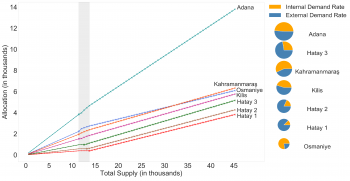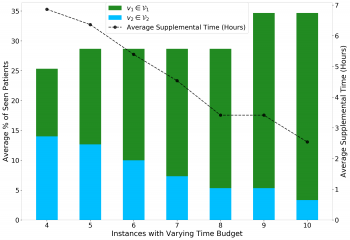Shima Azizi
Shima Azizi, Ph.D., is an Assistant Professor of Business Analytics and Information Systems in the Peter J. Tobin College of Business at St. John’s University. She received her Ph.D. in Operations Management from Worcester Polytechnic Institute, her M.Sc. in Industrial Engineering from the University of Kurdistan, and her B.Sc. in Industrial Engineering from the University of Tabriz. She teaches courses in prescriptive and predictive analytics, and operations management. Her research focuses on the use of advanced analytics, specifically operations research and data science, to solve practical problems in humanitarian operations, healthcare, and sustainability. Prior to joining St. John’s, she investigated alleviating challenges within refugee camp systems, the United States foster care system, as well as the United States community paramedicine programs.
CV


